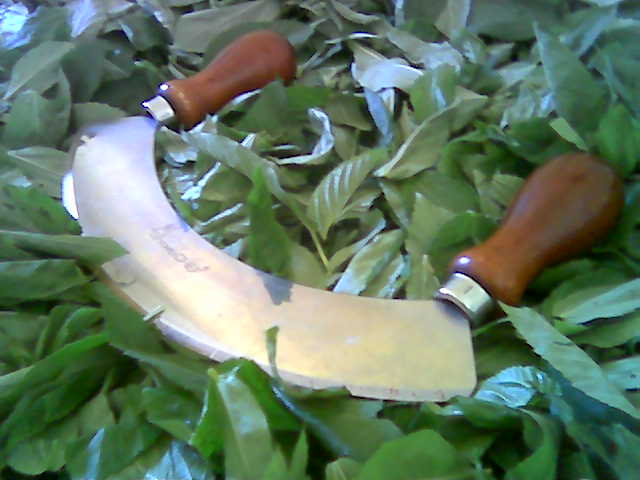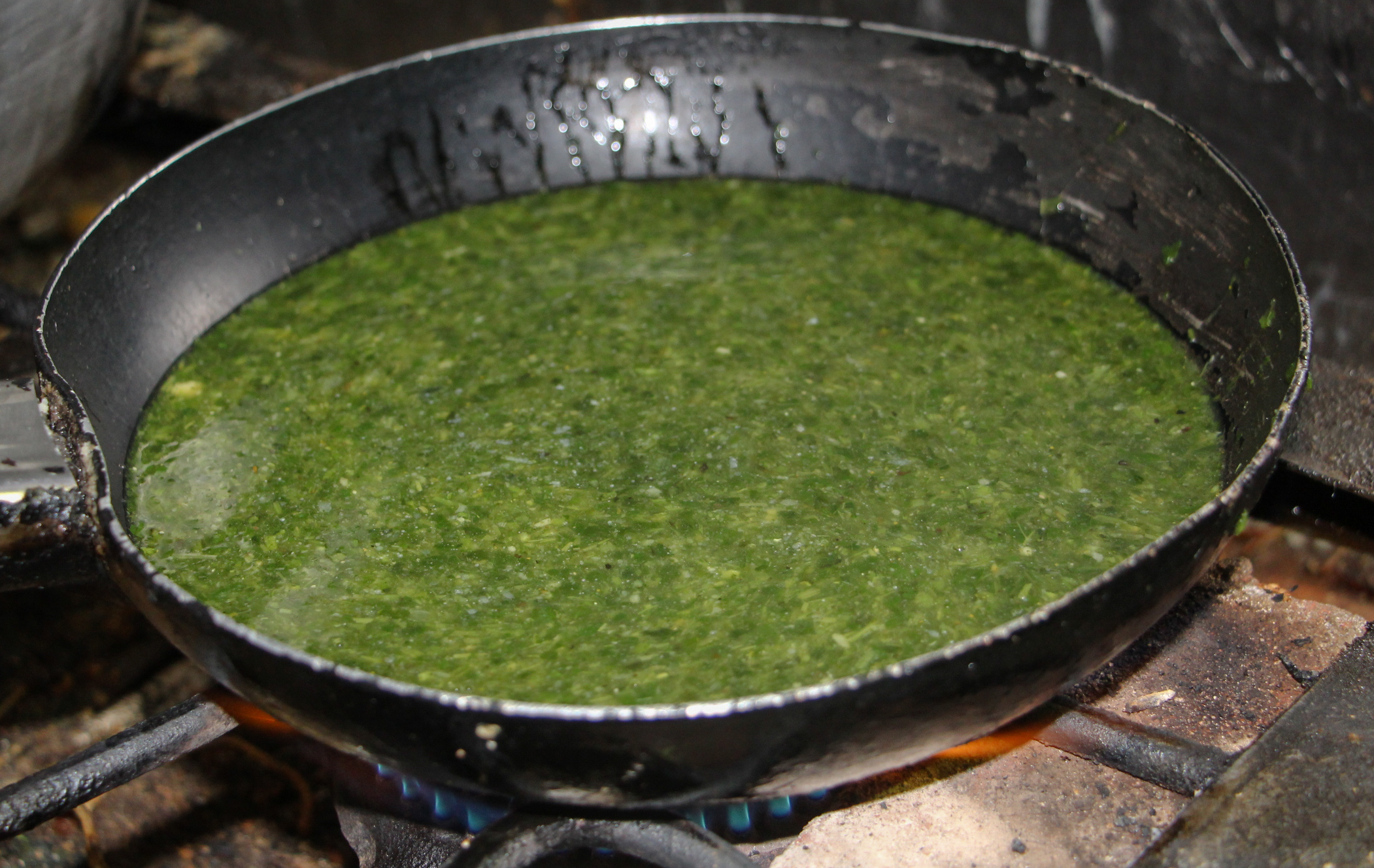Mouloukhiya? Such a funny name! It’s quite simple, you have to say “Mou-lou-rey-a”! This intensely green soup is an absolute delight, surpassing the iron content of spinach!
Why devote such a long article to a humble vegetable soup? Because when you’re in the Middle East, it’s not very easy to find mouloukhia outside of your local cuisine. In restaurants, this speciality is not very common, probably because it is a very simple soup.
In Cairo, at Abu Kareem restaurant, you can enjoy this Mouloukhira soup with the other specialities of Egyptian cuisine and lots of bread. You can also find it in the fast food chains, but it is much less tasty than in the very small restaurants where it is prepared in a more traditional way. Also, because it takes a lot of time to prepare without a food processor, this speciality is not always easy to find and then, it is better to come early because it is sold very quickly.
In Egypt, Tunisia or Lebanon, this culinary preparation has slightly different names, but they are pronounced the same way: mloukhiya, mouloukhiya or mloukhiyé. In French it is called “corète” (Corchorus olitorius), but this vegetable is little known in our gardens and shops. It’s a shame, because mouloukhiya is a real treat that also contains a lot of good for your health.
Much later, I happened to come across the composition of Mouloukhiya: a real firework!
Lots of iron, proteins, many mineral salts (calcium, potassium, magnesium, phosphorus, zinc), amino acids… It is a concentrate of benefits. It is also believed to have purifying properties: Light laxative, diuretic, purgative. And like its cousins, spinach, it has a reputation for bringing strength and vigour.
Looking further, it seems that mouloukheya was consumed in France until the 18th century. Then it disappeared from French menus
What a pity! You definitely need to rediscover this delicious soup! If you can find fresh mouloukheya, or why not plant it, making a soup from moulourekhia is really not difficult.
According to the Egyptian recipe, you need to chop the leaves finely. In express mode, all you have to do is put them in a blender. But not everyone, in North Africa or the Middle East, has a blender, so cooks seal the fresh mouloukheya leaves in a freezer bag and run the chopper over them until the leaves are reduced to a pulp. Before or after preparing the mouloukheya leaves, put few cloves of garlic in hot oil. Once the garlic is cooked through, it can be mashed a little in the pan. Then add the chicken stock, the Maggi cube and the crushed mouloukheya. Finally, add a bit of oil and simmer a little longer. Ready!
There are other ways to prepare the divine soup, but they require lots and lots of time
In Tunisia, it is cooked for more than eight hours, it is prepared the day before for the next day. Sometimes, depending of the region the mouloukhira soup is prepared with dried mouloukheya powder. This version is not as tasty as with fresh leaves, in my opinion. But this dried mouloukhira is easy to find in oriental shops.
Throughout the Maghreb and the Middle East, mouloukhiya is as popular as our good old vegetable soup
The first time I tried this typical Egyptian dish, I was overwhelmed. Such a green, almost black, silky soup, very fragrant, dense and velvety, it leaves a lasting impression on your taste buds!
Once cooked, it has a strange texture, half slimy, half gooey, that even made me think there was cheese in it.
I have seen many travellers looking at their bowl of mloukheya with suspicious eyes, refusing to even taste it. What a shame!
The poor have missed out on one of the gastronomic pillars of the Middle East! What hurts this preparation most in the eyes of Westerners is its consistency and its very dark green colour. A little courage to try it is to love it!
If you travel to Cairo, Libya, Tunisia, Lebanon, Israel, Palestine, Morocco, look for a local canteen where you can try this exceptional soup, it is really good, 100% local and really typical.

